Aarustralia’s A$14 billion coal industry is expected to be affected with an export ban to China and a terribly upset Prime Minister Scott Morrison said the decision by Beijing would be a “lose-lose” for the environment and trading relationship. Morrison argued – “It really is a lose-lose because coal from other countries, compared to Australian coal, have 50% higher emissions than Australian coal.”
Yet, in the same breath, Canberra demanded Beijing to clarify a report that China’s top economic planner had granted approval to power plants to import coal without clearance restrictions, except for Australia. If the report, which was published by Chinese news media on Monday, is true, then China has breached international trade rules – claims Australia.
The Chinese National Development and Reform Commission revealed in a meeting with 10 major power enterprises that the coal purchase price should not exceed 640 Yuan (US$97.8) per ton and it ordered power plants to share inventory to reduce the purchase of high-priced coal in the market. But if Morrison really thinks China will lose too, he better thinks again.
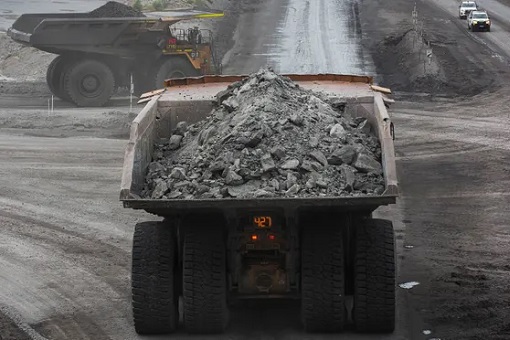
Wang Yongzhong, director of the Institute of Energy Economy at the Chinese Academy of Social Sciences, said – “China’s major coal import source countries used to be Australia, Indonesia, Russia and Mongolia. Since Mongolia has a geographic advantage that allows lower transportation costs than any other exporters, it could take a large share from Australian coal.”
Obviously, Mongolia could easily replace Australia as coal supplier – at a lower transportation cost. It’s also laughable to use environment factor as part of the sales pitch to spook a country like China to buy Australian coal. Even if Beijing really cares about the environment more than punishing Canberra, PM Morrison should have done his homework.
Although China has been the biggest coal importer in the world for over 10 years, the country has already planned to reduce 100 million tons of coal consumption annually by 2030 to accomplish its carbon-neutral goal before 2060. Hence, unlike other commodities like iron ore, the demand for coal in China has only one way to go – down.
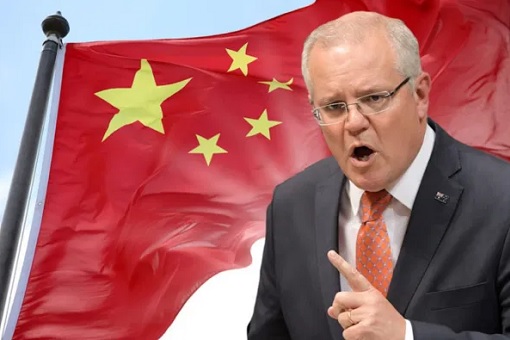
Of course, Morrison lied about his country’s coal. Global Carbon Project executive director, Dr Pep Canadell, has disputed the Australia’s argument that its “cleaner” coal will help China meet its emissions targets. He said – “It is all a very, very dirty energy source, whether it has a few more grams of CO2 or less. Coal doesn’t play a role in what China is pursuing now.”
To make matters worse for Australia, Russia suppliers plans to increase coal export to China, not to mention the emergence of Kazakhstan that says it plans to increase coal output to 120 million tons this year, with 38 million tons for export. Last month, Indonesia signed a three-year deal worth US$1.46 billion to sell more coal to China starting next year (2021).
Australia is the world’s top exporter of coal. Together with New Zealand, the Oceania exports US$44.4 billion worth of coal – a staggering 37.5% of global sales. Last year (2019), Australia exported coal worth almost A$14 billion to China – the third biggest export from the land Down Under. But in November this year, at least 60 bulk carriers holding Australian coal stranded off the coast in China.
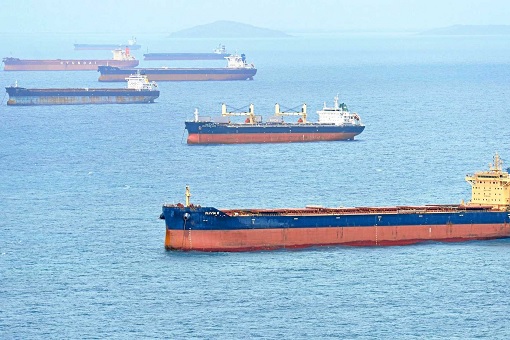
In fact, nearly US$500 million in Australian coal transported by more than 50 vessels has been stranded outside Chinese ports since June. “Some ships have been waiting for months,” – said Nick Ristic, a dry bulk analyst with Braemar. Typically, ships would take a few days to berth at Chinese ports like Jingtang, although the duration can increase to 15 to 20 days if it’s busy.
For months, Beijing has deliberately cooked up lame excuses to give a hard time to vessels carrying Australian coal – from “environmental problems” to “poor quality” coal. But this is arguably the first time China officially confirms that the Aussie commodity is banned – suggesting that Beijing is openly challenging Canberra to do its best to retaliate.
Australia’s Trade Minister Simon Birmingham has urged Chinese authorities to “rubbish” the report, saying if the story is accurate, it would appear to be the use of “discriminatory practices” against Australian coal. But even if China has breached the rules set under WTO (World Trade Organization) or even China-Australia Free Trade Agreement (ChAFTA), there’s very little Australia can do.
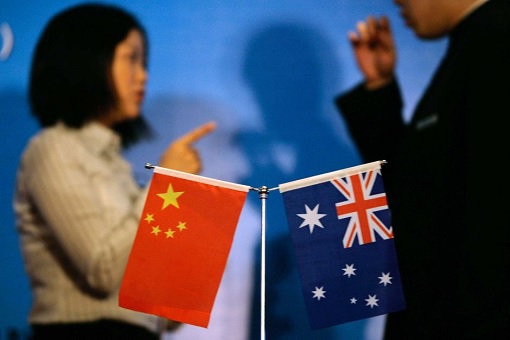
Elizabeth Sheargold, a postdoctoral research fellow at the University of Wollongong School of Law in Australia, said – “ChAFTA, like most free trade agreements, does not oblige either party to the treaty to purchase goods or services from the other. Instead, in ChAFTA both countries committed to eliminate or lower some of the barriers to trade such as tariffs or import quotas.”
In a nutshell, experts said neither country appears to have violated specific rules of the trade pact contained in WTO or ChAFTA simply because the deals are not a binding contract. They are just a set of trading guidelines and rules that are mutually agreed upon by China and Australia. The rules do not say that China “must trade” with Australia, and vice versa.
China is Australia’s biggest trading partner – about one-third of “the land Down Under” total exports go to the Chinese, contributing A$135 billion annually and providing thousands of jobs. However, beginning April, the relations between both nations have been spiralling downwards in the wake of Canberra’s call for an inquiry into the origins of Covid-19.
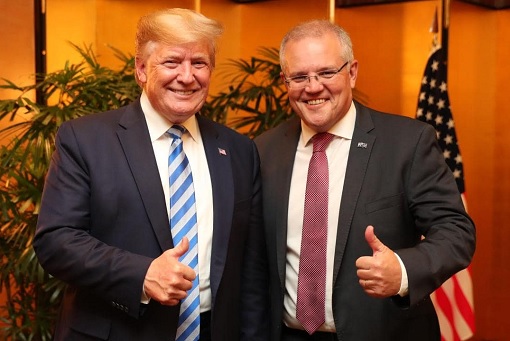
In April, Prime Minister Scott Morrison started what appeared to be a silly pro-Trump campaign, urging top allies France, Germany and New Zealand to pressure China to give the foreign countries the “weapons inspector-like” powers to investigate the Coronavirus outbreaks. That would be as good as an invasion, breaching the Chinese’s sovereignty.
Unimpressed, China mocked Australia of parroting U.S. President Donald Trump in its call for an inquiry to determine the origins of Covid-19. It was Morrison’s own admission that he had no evidence to suggest the disease originated in a laboratory in the Chinese city of Wuhan. Only Trump said he was convinced the virus may have originated in the Chinese virology lab.
So in April, Chinese Ambassador to Australia Cheng Jingye warned the Morrison government that its dangerous manoeuvre would spark a consumer boycott against Australian goods. Beijing made good on its promise, slapping an 80.5% tariff on all Australian barley grain in May after banning imports from four major Australian beef suppliers, allegedly over labelling issues.
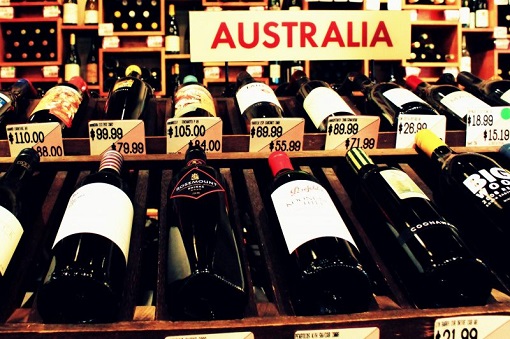
By November, the situation was so bad that Chinese import agents warned their clients they had been informed that no Australian shipments of wheat, barley, sugar, red wine, timber, wool, lobster and copper ores would be cleared. The Aussie’s tourism and education sectors have also been targeted when Chinese tourists and students were advised to stay away from the country.
In its latest effort, Canberra had tried – but failed – to use the China-backed Regional Comprehensive Economic Partnership (RCEP) deal to reset economic relations with Beijing. In a sign that Beijing was not interested to end its dispute with Canberra, a Chinese foreign ministry official deliberately unleashed a tweet – an image depicting Australian troops’ war crimes in Afghanistan.
The provocative image of a grinning Australian soldier holding a bloodied knife to an Afghanistan child’s throat had sparked condemnation from PM Scott Morrison, who demanded an apology from Beijing. Of course, the Chinese government refused to entertain the Australian’s request for obvious reason. From the beginning, it was a foolish decision to mix politics with business.

So far, there has been little indication that Australia’s political allies in the United States or Europe have been willing to step in and offer support. At least 13 Australian sectors have been subjected to tariffs or some form of bans because the United States’ “deputy sheriff” in the Asia-Pacific region was too eager to please Trump administration, and had bet wrongly that the U.S. president would win another term.
Other Articles That May Interest You …
- How This Image Of An Aussie Soldier With Knife On Afghan Child’s Throat Sparks New China-Australia Conflict

|
|
December 15th, 2020 by financetwitter
|


|

|

|

|

|

|




























M for Mahathir, M for Morrison…
Morris on has the same kind of big provocative mouth and plays the “tough guy” like Mahathir, he fires the cannon indescriminately and then gets properly surprised and shocked when he gets *rs*-fcuked by China.
Our own kampong back alley macho Mahathir made plenty of noise when he bragged and postured, said he would go and lecture China about “debt traps”. He did made a Chinese trip but China ignored his watered-down “lecture”, treated him below contempt and rewarded him with no benefit for his cronies with Chinese contracts.
Not only that, the Chinese stopped buying our palm oil and even our pirated version of Thai durian!
What’s happening with the Australian Mahathir is he’s going to get barley and coal shoved up his.
But then he’s got all the wine he can drink and all the beef he can eat, it’s not all that bad for the pleb with the strong convict accent.
When he wakes up from his merry drinking and stuffing himself with beef, he’s going to find a ruined economy, and no Trump to crawl to and
bark for.
And his *rse properly stuffed with fumeless coal and smoked barley…